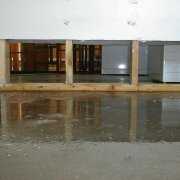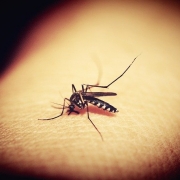Toxic Mold Is Topic Of Baton Rouge Seminar
BATON ROUGE – “You’re not supposed to grow mold in your house.” That’s the simple answer to deciding which molds are unhealthful, Wynn White, an environmental engineer, said. White was one of the presenters at a daylong seminar on toxic molds at the Pennington Center in Baton Rouge Friday.
Toxic mold has made its way in the news lately because of several high-profile cases where homeowners were forced out of their homes because of the mold. Many insurance companies have stopped writing policies protecting homeowners from mold partly because an array of lawsuits have been filed in recent years by people who claim they were made sick by the mold or who wanted builders to pay to have it removed. White said he has been contacted by lawyers about investigating structural mold problems for litigation purposes for about 10 years. Until “a year or so ago,” he resisted acting as an expert witness in such cases. Even now he insists that his testimony is for purposes of determining the extent of molds in a building rather than offering evidence for or against either side in a lawsuit. “People have health problems. It’s not always going to be mold,” he said. That doesn’t mean it’s not a problem, though. Thus, the workshop Friday. “We’re doing a workshop to teach these folks how to deal with mold,” he said, adding the seminar’s participants included building owners and managers.
Mold has emerged as a health concern in recent years because of changes in construction techniques that cause moisture to be increased inside buildings. With the advent of air conditioning, building techniques changed, he said. But air conditioning is not the problem in itself, he said. The problem always comes back to the basic elements need for mold to grow, temperature, food and water. “In the summer time keep your thermostat at 73 (degrees Fahrenheit) or higher and your humidity at 50 percent or lower,” minimizing the ideal conditions for mold to grow, he said. He said, “The bad thing is – how do we control humidity? – with the air conditioner. And you don’t use your air conditioner in the winter time.” Describing himself as something of smart aleck when asked to answer the obvious, he said, “You tell me which molds are bad for you. I can’t tell. You’re not supposed to grow mold in your house.” He acknowledged that molds are not always obvious because everyone does not have the same degree of senses of smell and sight. But he said, “If you can see it or smell it, you’ve got it. Clean it up.” If mold can be observed with the senses, “common sense” should tell someone there is no need to test for it, he said. “Having said that, if your attorney says test it, do it. If your doctor says test it, do it,” he said.
The extent of actions the average person can take to prevent or clean up mold “depends on what started the problem,” he said. However, he said there are some steps that can be taken to correct problems. “There are three things mold needs, temperature, food and water. The only thing we can control is water. We need to better manage water,” he said.
If you see mold growing on a wall, first determine what caused it and correct the problem, he said. Calling sheetrock “a sandwich for mold,” he said the popular interior wall material should be replaced to remove the mold, as should the underlying insulation if it has been dampened. He said, however, the key is to determine what caused the mold, such as leaky water pipe or dripping air conditioner duct, and eliminate the moisture. “People will clean their ductwork up. If you don’t make a fundamental change, the mold is coming back,” he said, adding replacement of water damaged materials in a house can be expensive.



 Image by
Image by 



